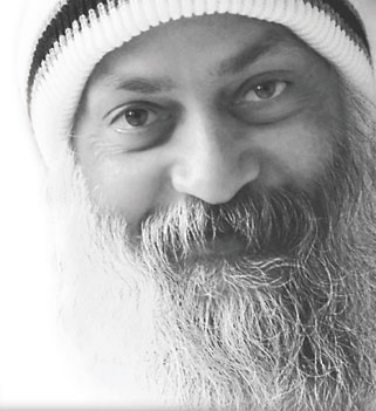Moleskine, o cativeiro de palavras
TEMATICA VARIADA, COM MAIOR INCIDÊNCIA NA MUSICA GENERALISTA, E NA FOTOGRAFIA, OBVIAMENTE COMO PILAR DE ESTAS DUAS FORMAS DE ARTE, ESTARÁ A POESIA

Há 100 anos, um mundo cinza colide com o antigo Império Russo retratado em cores. Por meio de suas fotografias, um homem abre janelas coloridas para um passado distante.

Girl with strawberries. Russian Empire
Quando penso no passado, penso em cinza. Talvez o faça parecer mais genuíno, partindo do pressuposto de que o passado é retratado sempre em preto e branco, seja nos livros de história, em nossa memória ou em fotos dos velhos álbuns empoeirados dos nossos avôs.
Porém, um homem – extremamente artístico – obteve sucesso ao retratar o antigo Império Russo, há 100 anos, em fotografias coloridas. As fotos foram feitas antes da Primeira Guerra Mundial e da Revolução Russa, ou seja, uma época em que os estudos para a fotografia colorida ainda estavam em andamento, com algumas tentativas não muito bem sucedidas. Esse homem foi o russo Sergei Mikhailovich Prokudin-Gorskii.
Sua técnica não era tão complexa quanto seu nome, porém inovadora para a época. Ele tirava três fotos – preto e branco – da mesma cena e em seqüência, mas com um filtro vermelho, outro azul e outro verde na frente da lente. Por meio de lâminas com três lâmpadas com cores idênticas às dos filtros, conseguia o efeito de uma composição colorida.
Apesar de cumprir seu objetivo, a técnica não era tão eficaz. Um dos problemas encontrados pelo fotógrafo era a necessidade de que toda a cena fosse completamente estática, ou a foto passaria a ter borrões, como podemos verificar em alguns resultados.
Suas fotografias foram tiradas entre os anos de 1907 e 1915 quando Sergei viajou sua terra natal para realizar um documentário fotográfico, aproveitando-se dos avanços tecnológicos na área. Seu projeto era retratar o antigo Império Russo – seus lugares e personagens. Ele não somente foi autorizado pelo Tsar Nicholas II, como recebeu todo o apoio necessário para a realização de seu trabalho. Sergei ganhou um carro devidamente equipado com o qual percorreria o país em suas viagens históricas.

Sixty-six years of service. Supervisor of Chernigov floodgate. Russian Empire
Nascido em 1863, em Muron, território hoje conhecido como Vladimir Oblast, o fotógrafo veio de uma família nobre, com um extenso histórico militar. Mais tarde foi para São Petersburgo e matriculou-se no Instituto de Tecnologia para estudar química.
Dedicou toda a sua vida em prol dos avanços da fotografia. Além de seu trabalho como fotógrafo e pesquisador, também deu aulas sobre sua “projeção óptica colorida”, dando vazão ao seu conhecimento para educar crianças acerca do grande Império Russo.
Mas Sergei consegue mais do que um projeto fotográfico, com uma interessante técnica a favor da fotografia colorida – a qual vingaria somente na década de 30. Ele consegue carregar nos ombros o privilégio de ter sido o único a retratar igrejas e mosteiros que foram destruídos na Revolução Russa, além de fotografar a vida dos trabalhadores das fábricas e do campo. Suas imagens exclusivas, de uma Rússia pré-Revolução, foram compradas pela Biblioteca do Congresso em 1948, a partir dos seus herdeiros.
Seu acervo conserva um passado diferente daqueles que estamos habituados a ver. O passado de Sergei tem mais vida. Ele deu cores a momentos, pessoas e lugares que veríamos somente em cinza.
O que há de mais belo em seu trabalho é a imperfeição. Algumas fotografias chamam a atenção por serem “sejas”, dando um certo desconforto visual. É a técnica em seu momento mais cru. Uma fotografia que conserva suas cores com uma visível luta.
Ao contemplarmos um trabalho de tamanha competência, mesmo com tantas dificuldades para ser executado, é possível sentir gratidão pela inusitada e interessantíssima experiência visual. Pelo impacto de poder observar um passado tão distante em cores.
A impressão que tenho sobre Sergei não é de um homem que fez tudo o que fez pura e simplesmente por amor à arte de fotografar. Tenho comigo que Sergei fez tudo o que fez por amor à história de uma terra que ele amava. E, ansiosamente, queria retratá-la da maneira mais fiel que conseguisse. E conseguiu. Deu à história outros olhares. Deu ao seu país uma outra visão de uma época perdida. Deu ao futuro um passado, colorido.

View of Novaia Ladoga. Russian Empire

Ostrechiny. Study. Russian Empire

Crew of the steamship "Sheksna" of the M.P.S. [Ministry of Communication and Transportation]. Russian Empire

Assumption of the Mother of God Church in Deviatiny (200 years old). Russian Empire

Peasant girls. Russian Empire

Head study

Group of railroad construction participants. Russian Empire

Ufa. Mezhgore. Russian Empire

Sukhumi. General view of city and bay from Cherniavskii Mountain. Russian Empire

Mullahs in mosque. Aziziia. Batum. Russian Empire

Emir of Bukhara. Bukhara. Russian Empire

Isfandiyar, Khan of the Russian protectorate of Khorezm(Khiva), full-length portrait, seated outdoors. Russian Empire

Western part of Tiflis. Russian Empire

Mozhaisk Nikolaevskii Cathedral. A side view. Russian Empire


Experts from England were called to India. They tried hard, and they said, "It is impossible. You will have to live with it." It was just a coincidence that one of the models of Rolls Royce, Silver Spur, suited me. The driver's seat in that car fits perfectly, gives me no trouble. Naturally, my people love….